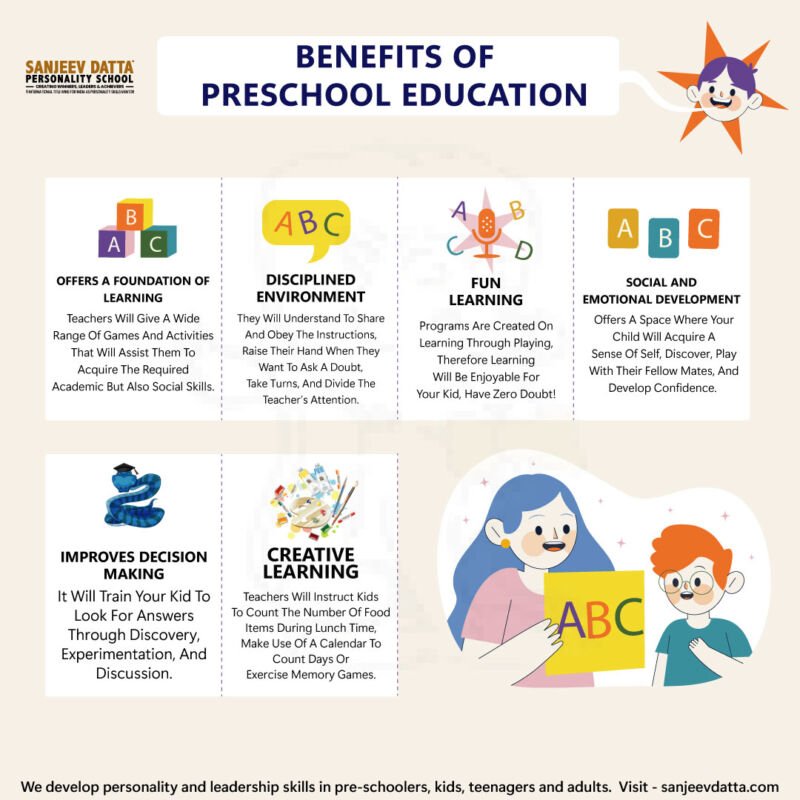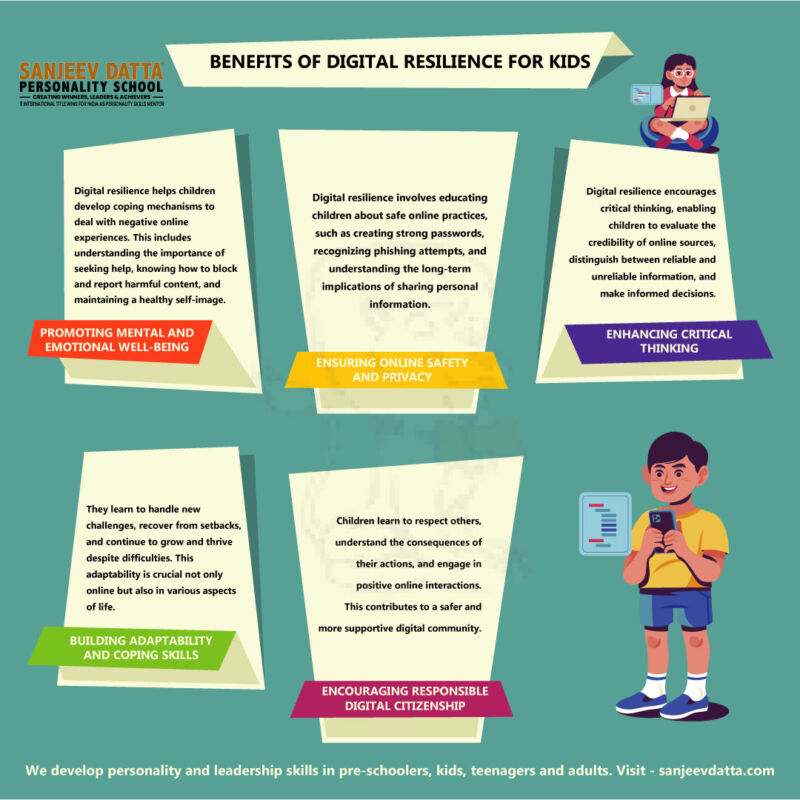Remember when your biggest decision as a teenager was choosing which college to attend or what major to pursue? Today’s teens face exponentially more complex choices—from selecting specialized high school programs to navigating digital careers that didn’t exist a decade ago, all while managing unprecedented academic pressure and social media influence.
Here’s the challenge every parent faces: you want your teenager to make good decisions, but you can’t make those decisions for them. What you can do is ensure they develop the decision-making skills they’ll need for a lifetime of choices that matter. And this is precisely where career counseling becomes invaluable—not just for choosing a career, but for building the analytical thinking, self-awareness, and confident judgment that underlie all good decision-making.
Career counseling boosts decision-making skills in ways that classroom education rarely addresses. While school teaches what to think, career counseling teaches how to think—how to evaluate options objectively, how to align choices with values, how to assess risk versus reward, and how to commit to decisions confidently even when the path isn’t perfectly clear.
In this comprehensive guide, we’ll explore exactly how professional career counseling develops decision-making competencies in students, why these skills matter far beyond career selection, and how you can support your teen’s journey toward becoming a capable, confident decision-maker who can navigate an uncertain future successfully.
Let’s unpack why career counseling might be one of the most valuable investments you make in your teenager’s development.
Understanding the Decision-Making Crisis Facing Today’s Students
The Paradox of Choice in Modern Education
Your teenager faces more options than any previous generation—and that’s actually making decisions harder, not easier. Psychologists call this choice overload, and it’s real. When faced with too many options without clear frameworks for evaluation, people either freeze or make rushed, poorly considered choices.
Consider what today’s students must decide:
• Academic pathways – Standard, honors, AP, IB, dual enrollment, or specialized programs
• Extracurricular focus – Sports, arts, clubs, volunteering, internships, or part-time work
• Technology usage – Which skills to develop, which platforms to engage with
• College decisions – Which schools to apply to, what to study, whether college is even the right path
• Career possibilities – Traditional professions, emerging fields, entrepreneurship, or gap years
• Life balance – How to allocate limited time among competing priorities
Without frameworks for evaluating these choices systematically, students resort to problematic decision-making patterns: choosing what friends choose, following parental expectations without ownership, selecting based on prestige rather than fit, or avoiding decisions until external circumstances force their hand.
Why Traditional Guidance Isn’t Enough?
Many schools offer guidance counselors, so you might wonder why career counseling boosts decision-making skills in ways school guidance doesn’t. The reality is that school counselors, however well-intentioned, typically manage caseloads of 400+ students.
Professional career counseling provides:
- Individualized attention focusing specifically on your teen’s unique situation
- Specialized expertise in career development and decision-making frameworks
- Time and depth to explore options thoroughly
- Objective perspective without institutional constraints
- Long-term relationship supporting decisions over months or years
- Research-based assessments revealing interests, values, and strengths

The Long-Term Cost of Poor Decision-Making Skills
When students don’t develop strong decision-making abilities, the consequences extend far beyond choosing the wrong major or career. They struggle with:
- Chronic indecisiveness – Unable to commit to paths, constantly second-guessing choices
- Impulsive decisions – Making choices reactively without adequate consideration
- External validation dependency – Requiring others’ approval before deciding anything
- Decision avoidance – Letting circumstances decide rather than taking ownership
By contrast, students who develop strong decision-making capabilities through career counseling become adults who evaluate options confidently, commit to choices without excessive anxiety, adapt when circumstances change, and take ownership of outcomes.
How Career Counseling Develops Core Decision-Making Competencies?
1. Building Genuine Self-Awareness
You can’t make good decisions without understanding yourself—your genuine interests, your actual values, and your real strengths and limitations. Yet most teenagers have surprisingly limited self-awareness.
Career counseling boosts decision-making by creating structured opportunities for self-discovery through:
- Interest inventories – Scientific assessments reveal patterns in what genuinely engages your teen
- Values clarification exercises – Identifying what truly matters provides criteria for evaluating options
- Personality assessments – Tools help students understand their natural tendencies
- Strength identification – Distinguishing between developed skills and natural talents
- Reflection practices – Guided journaling and discussion help teens articulate thoughts clearly
This self-knowledge becomes the foundation for all subsequent decisions. When your teenager understands what energizes versus drains them, they can evaluate options through the lens of authentic fit.
Teaching Systematic Information Gathering
Good decision-making requires good information. Career counseling teaches systematic investigation skills:
- Identifying reliable sources – Learning which resources provide accurate career information
- Conducting informational interviews – Developing confidence to reach out to professionals
- Job shadowing and internships – Creating opportunities to experience careers firsthand
- Understanding labor market data – Interpreting employment trends and salary information realistically
- Exploring educational pathways – Researching not just what to study but where and how
Career counselors teach students to ask critical questions: What does someone in this career actually do day-to-day? What’s the realistic path to entry? What are the actual trade-offs involved?
This research capability transfers far beyond career decisions.

Developing Analytical Thinking and Comparison Frameworks
Once students understand themselves and have gathered quality information, they need frameworks for analysis. This is where career counseling boosts decision-making most powerfully.
- Decision matrices – Creating structured charts weighing multiple options against criteria
- Pro-con analysis – Understanding that not all pros and cons carry equal weight
- SWOT analysis – Evaluating Strengths, Weaknesses, Opportunities, and Threats
- Scenario planning – Envisioning realistic outcomes for different choices
- Opportunity cost assessment – Understanding that choosing one path means not choosing others
- Values alignment scoring – Rating how well options align with personal values
These aren’t just career tools—they’re life skills.
collaborative problem solving for kids
Building Comfort With Uncertainty and Imperfect Information
No decision comes with perfect information or guaranteed outcomes. Career counseling helps teens develop comfort with ambiguity.
Counselors teach that:
- Good decisions don’t require perfect information – You need sufficient information, not complete information
- All choices involve trade-offs – There’s no option where you get everything
- Some decisions are reversible – Many choices can be changed if circumstances shift
- You can make any path work – Success depends more on commitment than finding the perfect choice
- Indecision is also a decision – Choosing not to choose has consequences too
For parents seeking comprehensive support that extends beyond career counseling alone, enrolling teens in a well-structured personality development course can provide tremendous value. The best programs integrate career exploration with broader skill development—teaching decision-making frameworks, building communication confidence, developing emotional intelligence, and cultivating the complete personality development skills that successful adults possess. Rather than treating career counseling as isolated from overall development, these integrated approaches recognize that career success depends on strong decision-making abilities, self-awareness, resilience, and interpersonal competencies working together.

The Career Counseling Process: How It Actually Works
1. Initial Assessment and Goal Setting
Effective career counseling begins with a comprehensive assessment—not just “What do you want to be when you grow up?” but a deep exploration of your teen’s current situation.
Typical initial assessment includes:
- Academic history and current performance
- Extracurricular activities and what they reveal
- Past experiences with work or volunteering
- Family expectations and cultural considerations
- Financial constraints and realities
- Timeline and urgency
- Anxiety levels and decision-making confidence
From this assessment, the counselor and student collaborate on goals like identifying career directions worth exploring, developing plans for gaining experience, or building decision-making confidence.
2. Exploration and Research Phase
With self-awareness and goals established, counselors guide systematic exploration of possibilities.
Exploration activities include:
- Career research projects – Investigating specific fields through structured inquiry
- Personality and interest assessments – Using validated tools providing data-driven insights
- Informational interviews – Counselors often facilitate introductions to professionals
- Job shadowing arrangements – Creating opportunities to observe careers firsthand
- Online exploration tools – Guided use of career databases and resources
- Industry trend analysis – Understanding where various sectors are heading
Throughout this phase, counselors teach research skills that serve students throughout life.
3. Decision-Making Frameworks and Practice
As students gather information, counselors introduce formal decision-making frameworks and provide opportunities to practice.
Counselors teach students to:
- Define the decision clearly – What exactly are you deciding? By when?
- Generate options – Brainstorm possibilities without immediately judging them
- Establish criteria – What matters in this decision?
- Gather relevant information – What do you need to know?
- Analyze options systematically – Use tools to evaluate options objectively
- Check emotional responses – Which options excite you? What do those feelings reveal?
- Make a provisional decision – Choose based on analysis and intuition
- Reflect and adjust – Does it still feel right after living with it briefly?
Students practice these steps repeatedly with progressively higher-stakes decisions, building competence incrementally.
Beyond Career Choice: Transferable Decision-Making Skills
1. Academic Decisions Become Clearer
The decision-making skills developed transfer immediately to academic choices. Students can:
- Choose courses strategically – Balancing genuine interest with skill development
- Select extracurriculars purposefully – Understanding quality beats quantity
- Make college decisions wisely – Evaluating schools based on fit rather than prestige alone
- Decide on majors confidently – Understanding that majors don’t determine destiny
- Navigate academic challenges – Deciding when to seek help or adjust strategies
2. Social and Personal Decisions Improve
The analytical thinking developed through career counseling boosts decision-making in non-academic areas:
- Friendship choices – Recognizing which relationships are healthy versus toxic
- Time management – Deciding how to allocate limited time based on values
- Technology usage – Making intentional choices about social media and screen time
- Risk assessment – Evaluating whether opportunities align with values and goals
- Conflict resolution – Analyzing interpersonal conflicts objectively
3. Financial Decision-Making Foundations
Career counseling involves discussing compensation, benefits, and education costs, creating natural opportunities to develop financial decision-making skills:
- Understanding opportunity costs
- Evaluating education as an investment
- Comparing compensation packages holistically
- Planning for financial independence realistically
- Assessing financial risk tolerance
The Parent’s Role in Supporting Decision-Making Development
-
Creating Space for Autonomous Decisions
One of the hardest challenges parents face is stepping back enough to let teens make their own decisions—including mistakes.
How to support autonomy while providing guidance:
- Resist the urge to decide for them – Let them work through the process
- Ask questions rather than give answers – Questions promote thinking
- Share your thinking, not just conclusions – Model decision-making processes
- Acknowledge different people weigh factors differently – Their values matter
- Support decisions even when you disagree – Your support matters more than agreement
- Normalize uncertainty and mistakes – Share your own stories
2. Providing Resources Without Pressure
Career counseling works best when parents provide access to resources while avoiding excessive pressure.
Healthy support looks like:
- Funding career counseling as an investment
- Encouraging exploration without demanding certainty
- Facilitating informational interviews through your network
- Supporting job shadowing opportunities
- Asking curious questions about what they’re learning
- Celebrating the process, not just final decisions
3. Recognizing When Professional Help Is Needed
Consider professional support essential if your teen:
- Shows extreme anxiety around decisions
- Avoids all discussion of plans
- Makes impulsive decisions without consideration
- Seems disconnected from own interests
- Follows peer choices blindly
- Faces conflict with you, damaging your relationship
For families committed to comprehensive development, integrating career counseling with broader personality development skills training creates the most powerful impact. While career counseling develops decision-making around work and education, comprehensive personality programs address communication, leadership, emotional intelligence, resilience, and interpersonal effectiveness. When teens develop these capabilities together, they become confident, capable individuals ready for whatever challenges their futures hold.

Choosing the Right Career Counselor
1. Credentials and Specializations Matter
Look for professionals with:
Relevant credentials:
- National Certified Counselor (NCC)
- Master’s degree in counseling or psychology
- Licensed Professional Counselor (LPC)
- Certified Career Counselor (CCC)
- Training in adolescent development
Appropriate experience:
- Track record working with teens
- Understanding of the current educational landscape
- Knowledge of emerging careers
- Cultural competence and sensitivity
2. Red Flags to Avoid
Be wary of career counselors who:
- Promise to identify the perfect career quickly
- Use only one assessment tool
- Push specific careers or programs
- Seem uncomfortable with teens
- Don’t involve parents appropriately
- Lack current knowledge
- Use outdated assessment tools
- Can’t explain their methodology
3. Understanding Investment and ROI
Professional career counseling typically ranges from $100-$300 per session, with comprehensive programs involving 8-12 sessions or more.
Consider the ROI:
- Avoiding costly mistakes – Changing majors or schools costs tens of thousands
- Reducing decision anxiety – Mental health costs are substantial
- Accelerating development – Skills that take years can be built in months
- Improving lifetime outcomes – Better career alignment leads to greater satisfaction
- Strengthening relationships – Outsourcing career discussions reduces family conflict
When viewed as an investment in lifelong decision-making capabilities, career counseling’s value becomes undeniable.
Common Concerns About Career Counseling Addressed
1. Is sophomore year too early?
Actually, sophomore year is ideal because:
- More time for exploration without pressure
- Can inform course selection
- Allows for internships before senior year
- Reduces stress during college application years
2. Won’t it limit options by choosing too early?
Quality career counseling expands awareness while teaching flexible decision-making. The goal isn’t locking into one path forever—it’s developing capabilities to navigate evolving careers throughout life.
3. My teen already knows what they want
Even certain teens benefit because:
- Certainty might be based on incomplete information
- Testing certainty ensures it’s based on genuine fit
- Decision-making skills apply to countless future choices
- They might discover related careers that fit better
4. We can’t afford private counseling
Alternatives exist:
- School group career counseling programs
- Community college free services
- Non-profit organizations
- Online programs at a lower cost
- Books and workbooks for self-directed exploration
Frequently Asked Questions
Q1: How is career counseling different from school guidance counselors?
School guidance counselors manage 400+ students and focus on compliance and logistics. Career counseling provides individualized, specialized support focused specifically on career exploration and decision-making development. Sessions are longer, more frequent, and deeply personalized. Most students benefit from both—they complement rather than replace each other.
Q2: Will career counseling pressure my teen to decide before they’re ready?
Quality career counseling reduces pressure by teaching that career development is a process, not a single decision. Good counselors emphasize exploration over premature closure. They teach decision-making skills while acknowledging that uncertainty is normal and healthy.
Q3: My teen has ADHD or anxiety—can career counseling still help?
Absolutely. Career counselors experienced with neurodivergent teens adapt their approaches to work with different processing styles and anxiety levels. They help identify careers that align with unique brain wiring. However, ensure you work with counselors who have specific experience with your teen’s particular challenges.
Q4: How long does career counseling typically take?
Comprehensive career counseling typically involves 8-15 sessions over 3-6 months. Sessions usually last 45-60 minutes weekly or biweekly. Between sessions, expect 1-3 hours weekly of homework, like research projects or informational interviews. The total investment is roughly 20-40 hours spread across several months.
Q5: Can career counseling help if my teen has no idea what they want?
This is actually the ideal situation for career counseling. Counselors specialize in helping students who feel lost. Through structured exploration, assessment, and exposure to various possibilities, students move from having no idea to being interested in exploring several directions. The process reveals interests students didn’t recognize and teaches them how to explore options systematically.
Conclusion: Investing in Lifelong Decision-Making Capability
We’ve explored how career counseling boosts decision-making skills through systematic self-discovery, information gathering, analytical thinking, and structured practice, making real choices with real consequences. These capabilities extend far beyond career selection into academics, relationships, finances, and every domain requiring thoughtful choice.
The teenage years represent a critical window for decision-making development. Your teen is old enough to face meaningful choices but young enough that mistakes aren’t catastrophic. They’re establishing patterns of how they’ll approach decisions for the rest of their lives.
Career counseling provides structured, expert guidance during this formative period, accelerating development that might otherwise take years of trial and error—or might never develop fully at all. Yes, it requires investment of time and money. But compared to the costs of poor decision-making across a lifetime, it’s one of the highest-return investments you can make.
Your teen stands at the threshold of countless decisions that will shape their life trajectory. They need more than advice about specific choices—they need the capabilities to make good decisions independently, confidently, and repeatedly across decades.
Career counseling doesn’t just help them choose what to do after high school. It equips them with the decision-making competencies they’ll need for every significant choice throughout their entire adult life.
The question isn’t whether career counseling boosts decision-making—the evidence is overwhelming. The question is whether you’ll give your teen this advantage as they develop into the capable, confident adult they’re meant to become.
Their future self will thank you for this investment.


